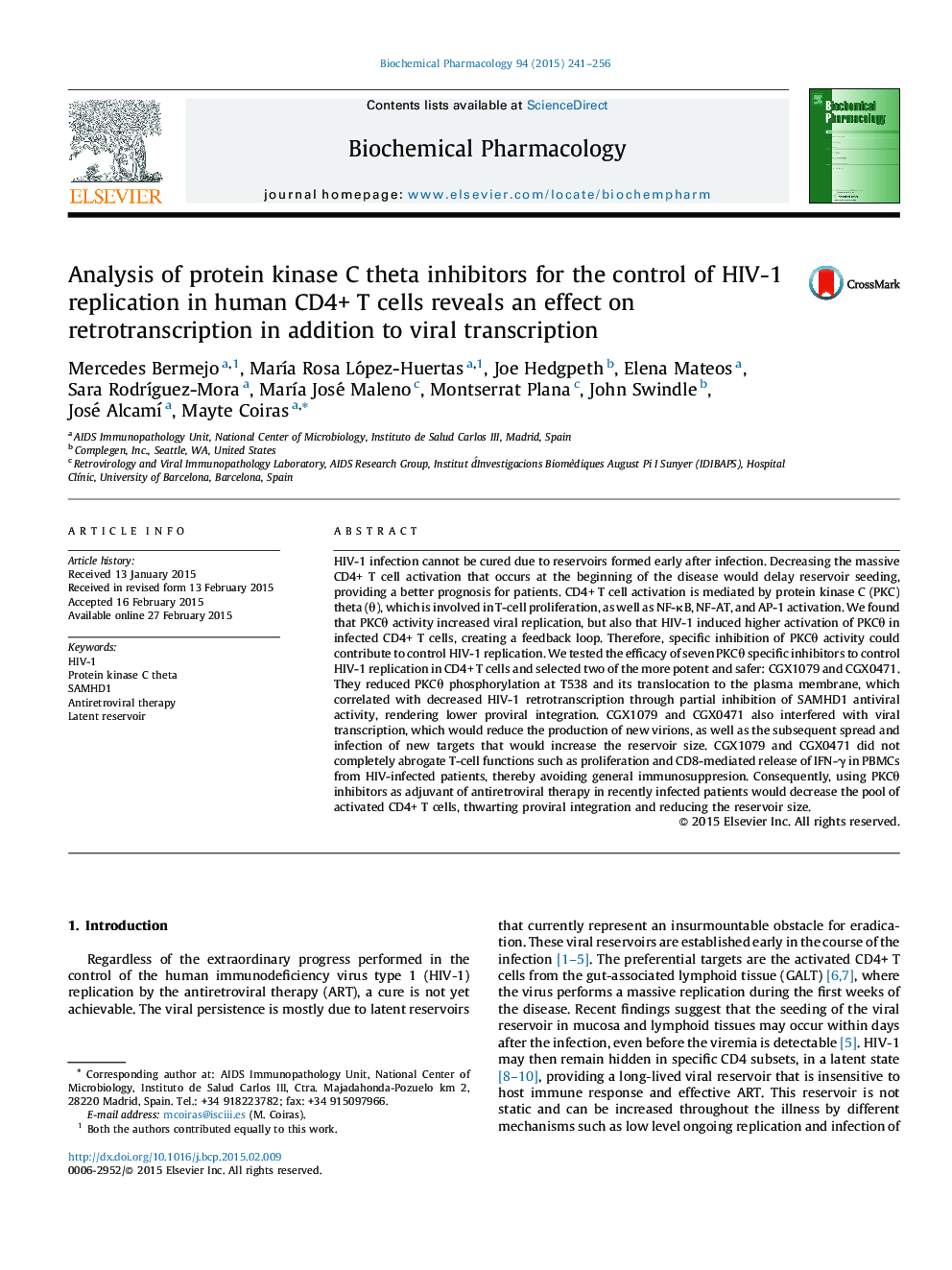| کد مقاله | کد نشریه | سال انتشار | مقاله انگلیسی | نسخه تمام متن |
|---|---|---|---|---|
| 2512067 | 1118311 | 2015 | 16 صفحه PDF | دانلود رایگان |

HIV-1 infection cannot be cured due to reservoirs formed early after infection. Decreasing the massive CD4+ T cell activation that occurs at the beginning of the disease would delay reservoir seeding, providing a better prognosis for patients. CD4+ T cell activation is mediated by protein kinase C (PKC) theta (θ), which is involved in T-cell proliferation, as well as NF-κB, NF-AT, and AP-1 activation. We found that PKCθ activity increased viral replication, but also that HIV-1 induced higher activation of PKCθ in infected CD4+ T cells, creating a feedback loop. Therefore, specific inhibition of PKCθ activity could contribute to control HIV-1 replication. We tested the efficacy of seven PKCθ specific inhibitors to control HIV-1 replication in CD4+ T cells and selected two of the more potent and safer: CGX1079 and CGX0471. They reduced PKCθ phosphorylation at T538 and its translocation to the plasma membrane, which correlated with decreased HIV-1 retrotranscription through partial inhibition of SAMHD1 antiviral activity, rendering lower proviral integration. CGX1079 and CGX0471 also interfered with viral transcription, which would reduce the production of new virions, as well as the subsequent spread and infection of new targets that would increase the reservoir size. CGX1079 and CGX0471 did not completely abrogate T-cell functions such as proliferation and CD8-mediated release of IFN-γ in PBMCs from HIV-infected patients, thereby avoiding general immunosuppresion. Consequently, using PKCθ inhibitors as adjuvant of antiretroviral therapy in recently infected patients would decrease the pool of activated CD4+ T cells, thwarting proviral integration and reducing the reservoir size.
PKCθ inhibitors CGX1079 and CGX0471 interfere with HIV-1 replication at viral transcription, through the inhibition of NF-κB, NFAT and AP-1 activation, and at viral retrotranscription by preserving SAMHD1 antiviral activity.Figure optionsDownload as PowerPoint slide
Journal: Biochemical Pharmacology - Volume 94, Issue 4, 15 April 2015, Pages 241–256